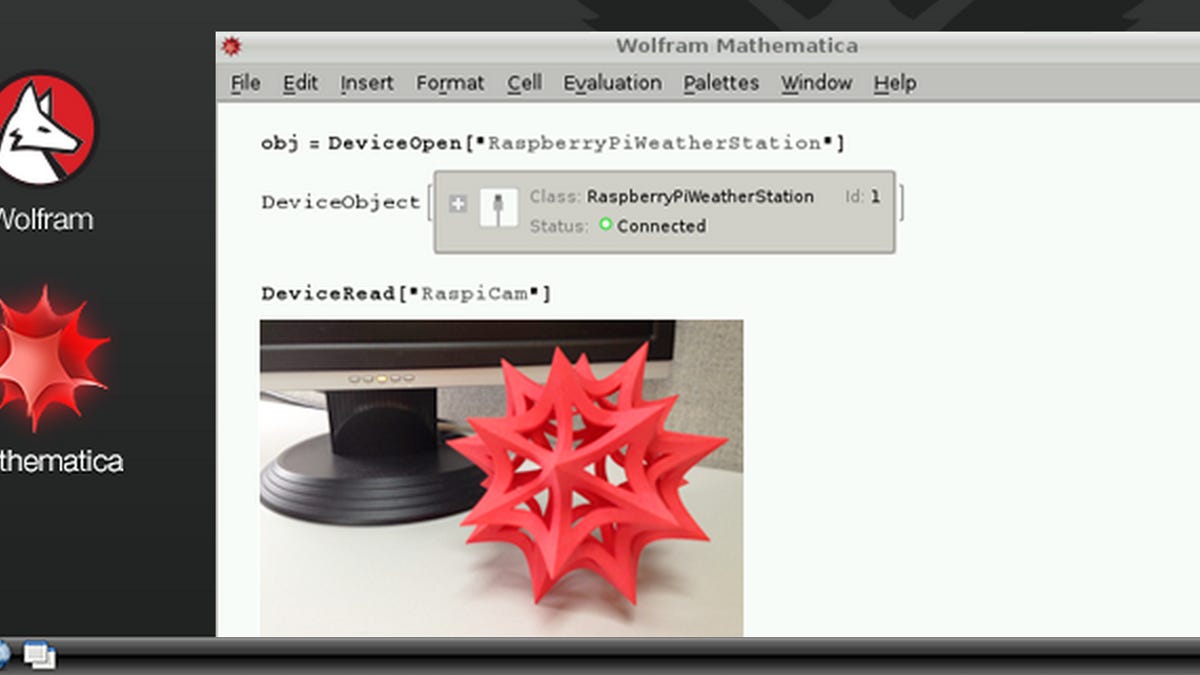Premium Mathematica software free on budget Raspberry Pi
Wolfram Research is giving away its Mathematica software for use on the diminutive, $25 Raspberry Pi computers -- and debuting a brand-new programming language.

Not since Steve Jobs' Next computers did Wolfram Research offer Mathematica, its premium mathematics, processing, and analysis software, for free.
The Next was an expensive, higher-end workstation. This time around, Wolfram is giving away Mathematica for computers at the opposite end of the spectrum: the diminutive, $25 Raspberry Pi.
It's a nice horse to hitch your cart to. Two million Raspberry Pi machines have been sold so far, and they're popular in the educational circles that Wolfram also targets.
Wolfram Research founder and Chief Executive Stephen Wolfram said Thursday that Mathematica is now available for Raspberry Pi computers and will ship with future models. In addition, the company also is including the first public prototype version of a new product, Wolfram Language.
"I'm a great believer in the importance of programming as a central component of education. And I'm excited that with the Wolfram Language I think we finally have a powerful programming language worthy of the next generation," Wolfram said. "We've got a language that's not mostly concerned with the details of computers, but is instead about being able to understand and create things on the basis of huge amounts of built-in computational ability and knowledge."
Those grand aspirations, to be sure, but they're nothing compared to how Wolfram introduced the Wolfram Language last week: "If we're forming a kind of global brain with all our interconnected computers and devices, then the Wolfram Language is the natural language for it."
Raspberry Pi machines -- naked circuit boards that run a version of Linux from an SD Card -- are geared for the hardware hacker crowd that's bubbling up in high-tech circles. They are of course not very powerful: Wolfram warns that Mathematica's graphical interface can be "sluggish." But the command-line interface is snappy, he said, and the machine is still vastly faster than those on which Mathematica got its start 25 years.
Mathematica is ordinarily expensive -- even the home version costs more than 10 times a Raspberry Pi, and the professional version is something like two orders of magnitude more costly than the tiny computer. But giving it away could make sense: Comparatively feeble Raspberry Pi machines are hardly likely to cut into sales of Mathematica on the workstations and laptops that paying customers use. And exposing students to new software and programming tools is a time-honored strategy to cultivate the next generation of customers.
It also could give Mathematica, a fairly academic product, more modern cachet. With the Raspberry Pi move, Wolfram also is aiming to find Wolfram Language uses such as Raspberry Pi weather stations and logging location data that are more likely to appeal to the tinkerers.
"Raspberry Pi...encourages me to try a new style of real-world-connected computing," Wolfram said. "For a start, it's easy to connect devices to a Pi. And a Pi is small and cheap enough that I can put it almost anywhere. And if I start a Wolfram Language program on it, it's reliable enough that I can expect it to pretty much go on running forever -- analyzing and uploading sensor data, controlling an autonomous system, analyzing and routing traffic, or whatever."

